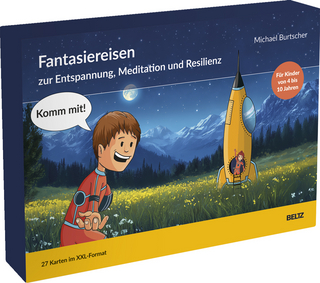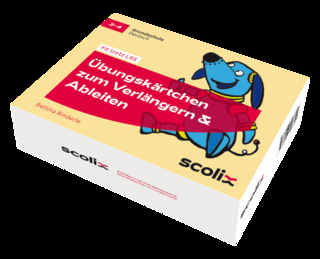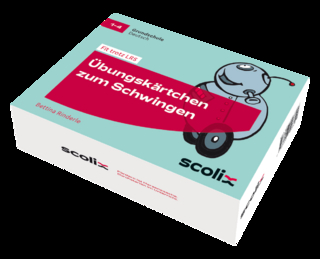
Second Handbook of Information Technology in Primary and Secondary Education
Springer International Publishing
978-3-319-71053-2 (ISBN)
The proliferation of mobile devices and applications have had major implications on how the nature of teaching and learning should be conceptualised, and what pedagogical practices should be used to support bridging formal and informal learning. The advent of social media also highlights the importance of gaining a deeper understanding of social learning theories and computer-supported collaborative learning theories and practices. The advancement of new technologies to support easy accessibility of educational resources such as OER and to a lesser extent MOOCs have led to the debate on how assessment should be conducted and how technologies could be used to support it.
The demand of the knowledge society requires that researchers, policy makers, and educational practitioners be conversant with new research findings in order to understand the impact of ICT in teaching and learning, and how to support learners to use new technologies and applications creatively and effectively. New research paradigms have emerged to meet these challenges.
Dr. Joke Voogt is professor of ICT and Curriculum at the Faculty of Behavioural and Social Sciences of the University of Amsterdam and professor of Educational Innovation and ICT at Windesheim University of Applied Sciences. Since the 1980s she has been investigating the integration of Information and Communication Technology in educational practice in national and international settings. She was part of the coordination team of Second Information Technology in Education Studies (1998-2008) of the International Association for the Evaluation of Educational Achievement and is currently involved as a curriculum specialist in the OECD Education 2030 study: The future of Education and Skills. Dr. Voogt is co-editor of the first edition of the International Handbook of Information Technology in Primary and Secondary Education. She is co-founder and chair of the EDUsummIT, the international Summit for research, policy and practice that emerged from the first edition of the Handbook. Dr. Voogt has more than 100 scientific publications. Her areas of expertise are curriculum innovation, teacher learning and development, 21st century skills, in particular related to the integration of technology in education. Dr. Voogt has a master's degree in Educational Science and Technology (with distinction) and a doctoral degree (PhD) in Educational Sciences from the University of Twente, The Netherlands. Dr. Gerald Knezek is Regents Professor of Learning Technologies at the University of North Texas (UNT), USA, and Co-Director of the Institute for the Integration of Technology into Teaching & Learning (IITTL) at UNT. He was a Fulbright Scholar at the Tokyo Institute of Technology and Japan's National Center for University Entrance Examinations during 1993-94 and completed Fulbright Senior Specialist appointments in Ecuador during 2006-07 and in the Netherlands during 2011-12. Dr. Knezek received his B.A. in Mathematics and the Social Sciences from Dartmouth College, USA, and his M.Ed. and Ph.D. degrees in Educational Psychology from the University of Hawaii. He was Co-Editor on the first edition of the Handbook published in 2008. Dr. Rhonda Christensen, Ph.D., is Research Professor in the Learning Technologies Department in the College of Information at the University of North Texas, USA. She is a co-director of the Institute for the Integration of Technology into Teaching and Learning at UNT and a Co-PI and Project Director for the Going Green! Middle Schoolers Out to Save the World (MSOSW) project funded by the U.S. National Science Foundation (NSF) Innovative Technologies Program and the National Aeronautics and Space Administration (NASA) Space Science Education Consortium funded project. She serves as the Chair of the IT Council for the Society for Information Technology in Teacher Education (SITE). She is a Fulbright Senior Scholar recipient working in the Netherlands on a research teaching assignment. Dr. Christensen has participated as a leader and participant in four of the international EDUSummIT meetings focused on ICT in education. Dr. Kwok-Wing Lai is Professor of Education and Director, Centre for Distance Education and Learning Technologies, at the University of Otago, New Zealand. He was a high school teacher in Hong Kong prior to completing his graduate studies in educational technology in Canada, at Queen's University and the Ontario Institute for Studies in Education, University of Toronto. He is the founding editor of Computers in New Zealand as well as the founding president of Knowledge Building New Zealand. He has been part of the leadership team of EDUsummIT (International Summit on ICT in Education) since its inception, and was its program co-chair in 2015 and 2017. He was a section editor of the first edition of this Handbook.
Introduction.- Section 1 - Working title: Challenges in 21st century curricula.- Section 2 - Working title: Learners and the Learning processes.- Section 3 - Working title: Attitudes, competencies, and dispositions for learning and teaching.- Section 4 - Working Title: Professional learning & development of teachers.- Section 5 - Working Title: The role of leadership.- Section 6 - Working Title: Assessment: issues and opportunities.- Section 7 - Working Title: Flexible and distance learning.- Section 8 - Working Title: Mobile learning.- Section 9 - Working Title: Educational games, simulation, and emerging technologies.- Section 10 - Working Title: Digital equity.- Section 11 - Working Title: Research paradigms.- Section 12 - Working Title: International policies.
| Erscheint lt. Verlag | 23.8.2018 |
|---|---|
| Reihe/Serie | Springer International Handbooks of Education |
| Zusatzinfo | XXIX, 1401 p. 65 illus., 46 illus. in color. In 2 volumes, not available separately. |
| Verlagsort | Cham |
| Sprache | englisch |
| Maße | 155 x 235 mm |
| Gewicht | 2272 g |
| Themenwelt | Schulbuch / Wörterbuch ► Unterrichtsvorbereitung ► Unterrichts-Handreichungen |
| Geisteswissenschaften ► Psychologie ► Allgemeine Psychologie | |
| Geisteswissenschaften ► Psychologie ► Pädagogische Psychologie | |
| Sozialwissenschaften ► Pädagogik ► Schulpädagogik / Grundschule | |
| Schlagworte | curriculum in the 21st century • Cyberwellness • device compatibility, infrastructure and ownership • digital equity • effective teaching with IT • flexible and distance learning • future perspectives on IT and assessment • games and simulation-based learning • ICT and inquiry-based learning • information technology in teaching and learning • Learning and Instruction • lifelong learning competencies • measuring emerging technology impact • online learning communities in K-12 settings • role of school leaders in ICT in education • teacher dispositions for IT in education |
| ISBN-10 | 3-319-71053-2 / 3319710532 |
| ISBN-13 | 978-3-319-71053-2 / 9783319710532 |
| Zustand | Neuware |
| Informationen gemäß Produktsicherheitsverordnung (GPSR) | |
| Haben Sie eine Frage zum Produkt? |
aus dem Bereich


